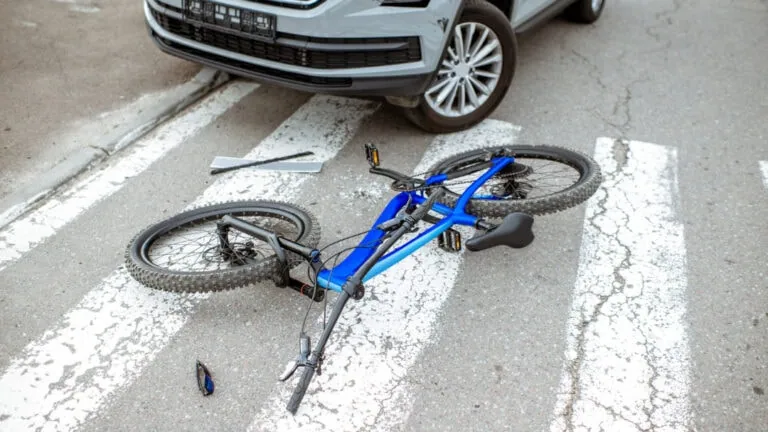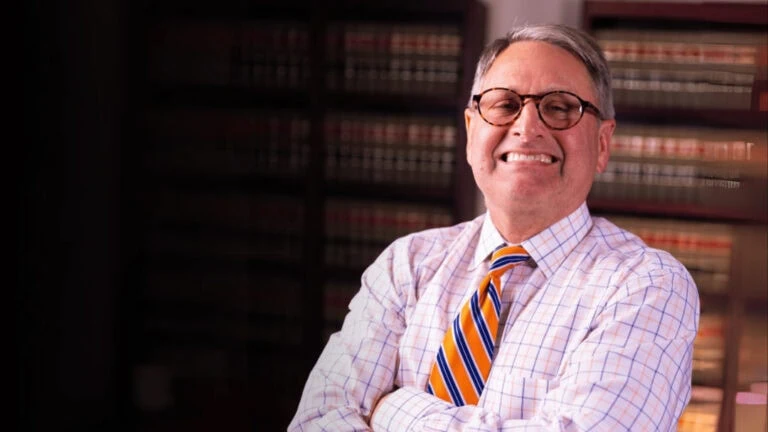1. Always report the crash to the police. Always report the crash, even if you don’t think you are hurt or your bike has been damaged. If you are in a crash with a motor vehicle where there are personal injuries or damage to property that exceeds $500, Florida law requires you to report the crash. But even when not required by law, reporting the crash is critical to preserving your rights. The crash report will document important facts about your crash, such as the road conditions, the weather, the eyewitnesses to the crash, and will usually contain a diagram of the crash scene. If the other party to the crash acted improperly, reporting the crash will likely result in the other party receiving a traffic citation. Many times, bike crash victims advise that their back or knee pains didn’t occur until hours or even days after the crash. Sometimes bike damage is not obvious until the bike shop inspects. Report the crash even if it involves you and a dog or a hole in the road.
2. Obtain the names, addresses and telephone numbers of witnesses. If you can, try to find out the identity of eyewitnesses to your crash. Police officers frequently do only superficial investigations, and don’t bother to take the names of all the witnesses. Don’t rely on the police officer to do this! After the witnesses leave the scene, you may never see them again.
3. Don’t say anything to the other party about how the crash happened. It is really true – anything you say can be used against you later on. Never make a statement apologizing for the crash or accepting part of the blame. It is not fair for an assessment of fault to be made right then, before the whole sequence of events has been analyzed. If another party to the crash makes a statement about his/her fault, remember this statement and write it down as soon as you can.
4. Preserve the condition of your property. If you are not too badly hurt, it will be tempting to head right for your bike shop to fix the bent handlebars, broken rear derailleur, and other necessary repairs. Don’t do it until you have chatted with a lawyer about your rights. Also, carefully photograph the damage, and have the bike shop manager document the exact nature of the damage. If another party caused your crash, they may be responsible for paying for your bike damage. But you must give that party or its insurance company a chance to inspect the damage before your bike is repaired. Make sure you don’t leave your damaged bike outside, or in some storage place where its condition deteriorates. Keep it in your garage or at the bike shop with strict instructions that the condition not be disturbed. Keep your smelly clothes, your helmet, your shoes, your gloves, your sunglasses, EVERYTHING, just the way it was after the crash.
5. Report the crash to your car insurance company as soon as possible. If your bicycle crash involved a truck or car, you may be entitled to receive certain benefits from your own car insurance. Even though you weren’t driving a car, under Florida law your car insurance will be obligated to pay you “PIP” benefits to the extent you incur medical bills or lose wages by being unable to work. Your car insurance may also have to provide you with “uninsured motorist” benefits. Your insurance agent is obligated to explain to you all of the potential benefits to which you may be entitled. Get a lawyer to help you fill out the necessary insurance forms to begin receiving Florida “PIP” benefits. Under Florida law, your car insurance is “primary,” meaning it must pay for your medical bills before your private health insurance must pay.
6. Report the crash to the at-fault party’s insurance company as soon as possible. In a bike/car crash, the investigating police officer will usually take information from the other party identifying that party’s car insurance company. This information will then be placed in the written crash report. If the crash involved a dog, you should learn who owned the dog and information about the owner’s homeowners insurance. If the crash was caused by a dangerous condition, such as a bridge grating or loose drainage cover, find out who is responsible for this property, and report it to them. Thereafter, make sure you personally contact this person’s insurance company to inform them about the crash. Insurance companies usually have a provision in their policies which precludes coverage for the crash if not reported within a reasonable period of time. When you report the crash, try to obtain the insurance company’s claim number and adjuster assigned to handle the claim.
7. Document your physical condition. Take photographs of your bumps, bruises, road rash and scabs. If you must have a cast, use crutches, or wear a splint, keep these items, and have photographs made of you using these things. Consider writing a diary of all the activities you can’t perform, and the aches and pains you feel. Months down the road you’ll forget about all this.
8. Photograph the location of the crash. Take photographs or videotape of the place where the crash happened, even if there are no markings on the road to suggest a crash occurred. Roads are resurfaced, widened, and new signs put up all the time. The conditions of the road when you had your crash may be changed by road construction soon thereafter. Get photographs before the crash scene changes.
9. Don’t ignore traffic citations. If you were issued a traffic citation, you have more choices than just paying the ticket. Under Florida law, if you pay a ticket without contesting it, your record will indicate you were “guilty” of the offense, but no points will be assessed unless your violation involved the use of a motor vehicle. Your insurance company will probably learn of your violation, and could consider your infraction when deciding whether to continue insuring you. Your guilty plea will also be used to your detriment in any claim you may make against the motor vehicle driver/owner. Alternatively, you have the right to contest the ticket or try to work out a plea of “without adjudication.” If you contest your ticket and win, no fine or costs will be assessed. If you reach an agreement of “withhold adjudication,” you will be required to pay court costs, but there will be no record of “guilty.” Contact a lawyer to help you with your ticket.
10. Don’t talk about the crash. Other than as required to report the crash to the police, insurance companies or your doctors, don’t talk about the crash or your injuries. Never give a recorded statement to the other party’s insurance company – you have no obligation to do this. Anything you say about the crash or your injuries can be used against you later in court. On the other hand, whatever you say to your attorney is confidential, and cannot be used against you.
11. Consult with a reputable attorney. Crashes may have ramifications in traffic court, criminal court or civil court. There are time deadlines on most claims with which you must comply or your rights could be terminated. You should at least meet with an attorney to discuss your rights in all three courts. This attorney should have expertise in bicycle crash cases, and should have handled numerous bicycle crash claims in the past. Most reputable attorneys will meet with you free of charge. After an initial consultation, you can decide better whether you have any need for an attorney.
$3.5 Million Settlement
Defective Product
$600,000 Verdict
Construction Accident
$750,000 Verdict
Nursing Home Abuse
$2.8 Million Verdict
Asbestos / Mesothelioma
$1,500,000 Verdict
Auto Accident
$8 Million Settlement
Medical Malpractice
$750,000 Verdict
Defective Product
$17,400,000 Verdict
Tobacco Injuries
$600,000 Settlement
Bicycle Accident
$810,000 Recovery
Auto Accident
$370,000 Recovery
Auto Accident
Six Figure Settlement
Wrongful Death
$4 Million Verdict
Auto Accident
$500,000 Recovery
Business Litigation



